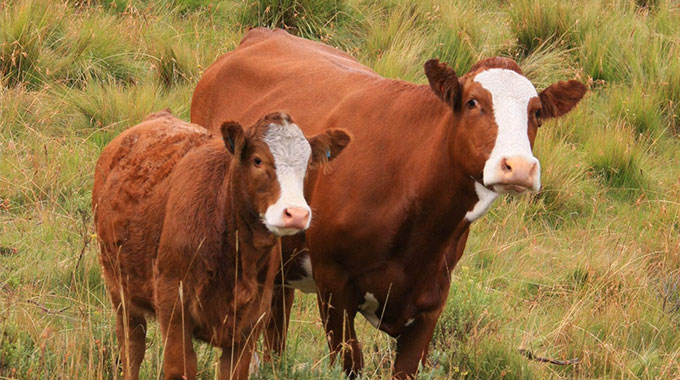
Thupeyo Muleya, Beitbridge Bureau
Livestock production is one of the major economic drivers in Matabeleland South province where crop husbandry cannot do well under normal rainfall patterns.
Additionally, in some parts of the province, it is believed that the idea of whether or not a man is desirable is determined by the number of cattle he has.
However, erratic rains and a continued attack on cattle, sheep and goats by hyenas have brought agony to farmers, mostly in the resettlement areas.
In areas around Beitbridge and Gwanda, animal husbandry is common and a lot of sentimental value is attached to livestock, mainly cattle. This area falls under agro-ecological region five and the Meteorological Services Region Three.
Life has become burdensome for some villagers who have to watch their livestock succumb to drought and wild animals, slowly damaging their pride. Farmers on the border of Gwanda and Beitbridge districts are some of the hardest hit by hyenas.
In separate interviews, livestock farmers in Driehoek said hyenas have unleashed a reign of terror and were slowly diminishing the few cattle that have survived the drought.
“We commend the Government for resettling us in this area considering that most of us moved from places where pastures were diminished,” said Mr Esau Mabulala Dube, a village head at Driehoek.
“I came here from Nhwali area, with six cows but now I have over 30, several others succumbed to drought and currently hyenas have become a threat to frail cows.
“We’re appealing to authorities to bring hunters to track down the hyenas which are a threat to our only source of livelihood. Our second request is for Government to scale up the command livestock programme to help those farmers who lost their livestock to drought to restock,” he added.
Mr Dube urged development agencies to create market linkages in order for farmers to reap real economic benefits from their livestock under a devolved economy.
The village head said the community also needs help to de-silt the only dam in the area which caters for over 1 500 people in Driehoek.
The dam, he said, is a source of water mostly for livestock and several villagers.
Some community members said a refined command livestock programme should incorporate more women, considering their role in society.
It is envisaged that capacitating the livestock farmers will enhance Matabeleland South’s economic growth under the devolution concept.
The province abounds with investment opportunities in farming, mopani worms, livestock production, tourism, mining, energy and also has borders with Botswana and South Africa where economic activities are high.
“The soils here are good compared to the places most of us used to farm in before the land reform programme.
“However, we appeal to the Government to urgently address the issue of wild animals preying on our livestock.
“We’re willing to embrace ideas or anyone who would help us grow our livestock production into formidable businesses,” said Ms Kholiwe Sibanda who stays along the boundary between Beitbridge and Gwanda districts.
Matabeleland South Provincial Agriculture Extension Officer, Ms Simangaliphi Ngwabi said they had recently lost a cumulative 16 853 cattle to poverty deaths.
She said Beitbridge recorded the highest number with 4 413 succumbing to drought followed by Matobo which had 2 993 deaths.
She said Bulilima, Gwanda, Insiza, Mangwe and Umzingwane had 2 697, 2 569, 2 357, 1 434 and 390 cattle deaths respectively.
Chronicle is reliably informed that over 7 000 cattle farmers, most of them smarting from the effects of the devastating drought, have registered for the command livestock scheme in Beitbridge district alone.
Beitbridge is estimated to have 120 000 cattle, 145 000 goats, 60 000 sheep, 37 000 donkeys, 2000 pigs, 6 000 dogs and 25 000 poultry. The command livestock element includes beneficiaries from communal, A1 and A2 farms.
The programme covers cattle breeding (bulls, heifers and breeding cows), cattle fattening and small stock including poultry, piggery, goats and sheep.
Launching the programme two years ago, President Mnangagwa said it was important for Government to put forward a programme for those who were willing to be empowered.
He said the Command Livestock initiative would cover those interested in piggery, fisheries, ruminants and poultry, among others.
“We’re not financing this programme from the fiscus, but we got the money from the private sector which has renewed confidence in us while we develop our agriculture sector,” explained the President.
President Mnangagwa said Matabeleland South had a lot of water bodies which must be utilised to promote irrigation and citrus farming especially in Beitbridge district.
At inception of the programme, President Mnangagwa handed over 660 heifers to 151 beneficiaries from Matabeleland South’s seven districts.
They were comprised mostly of Brahman, Brano and cross Brahman breeds and were part of the 1 660 herd allocated to the province under the scheme.
